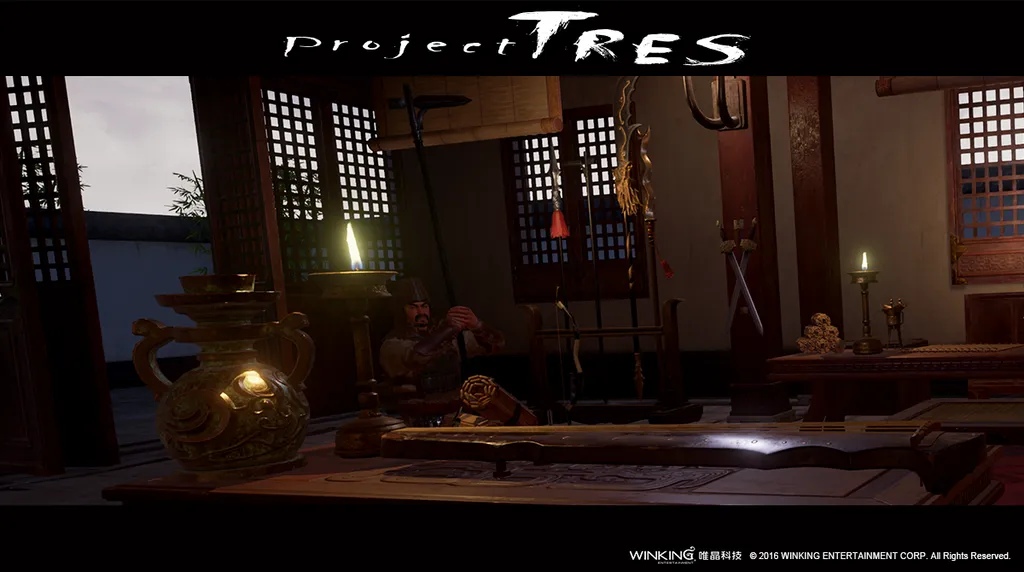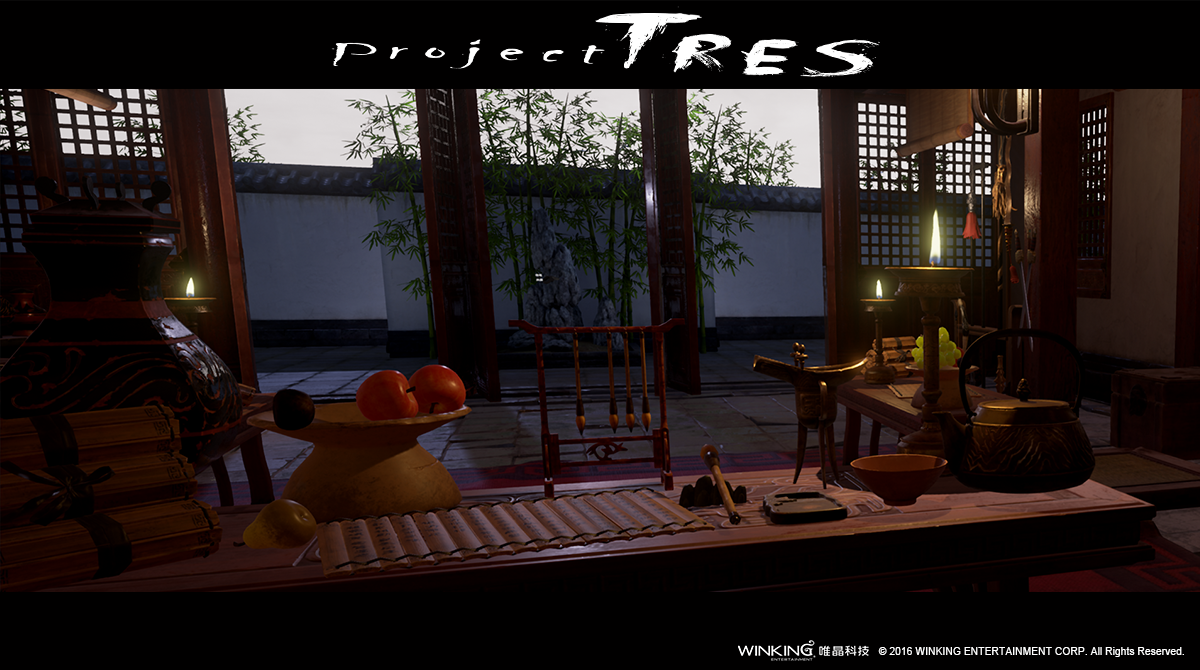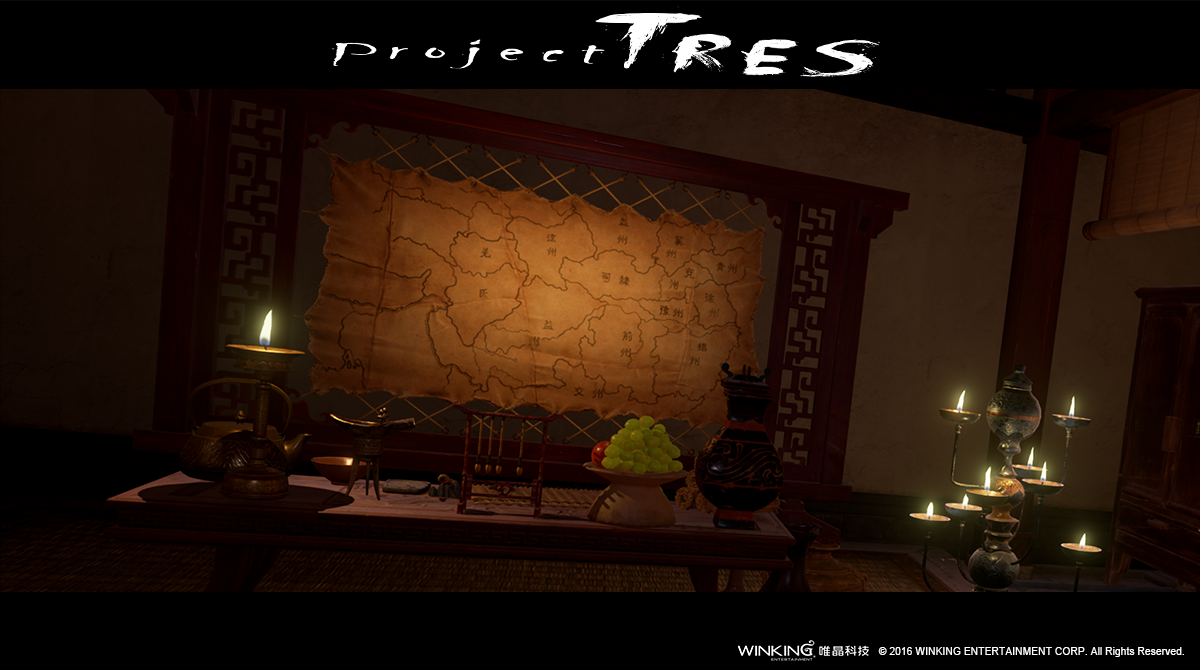If you give me something in VR, there’s a very good chance the first thing I will try and do is break it. In The Gallery, I immediately tried to smash a bottle. In Job Simulator, I threw my food through the service hatch. In Oculus Toybox, I attempted to pull a toy robot apart. VR lets me be as irresponsible and chaotic as I desire and I always seek to take full advantage of that.
In Winking VR’s Project Tres, however, I didn’t dare touch anything. Despite being in a room filled with objects just begging to be hurtled onto the floor, I didn’t want to cause any trouble. Why? Because I was really standing in an ancient Chinese site, littered with artifacts and antiquities that would now be considered incredibly valuable, and likely only seen behind the guarded glass of museum exhibits. I didn’t want to break anything because I felt like I was privileged to be standing there and that I should have nothing but the utmost respect for my surroundings.
That arresting sense of authenticity and historical significance was something I hadn’t yet experienced in VR.
So what is Project Tres? Well it’s sort of a tech demo for something a little more ambitious right now. It’s the foundation of what Winking claims will be an adaptation of Romance Of The Three Kingdoms. Yes, that Romance Of The Three Kingdoms, the 14th century novel that’s set nearly 2000 years ago at a time in which China was split between three states.
It’s rich, if unconventional, material to mine for a VR experience and could be unlike anything else yet seen on the HTC Vive (an Oculus Rift version is also in the works). Winking is promising it will turn into a full action role-playing game in which you’ll take on the role of three different warlords and experience epic battle scenes. For now, however, it’s offering just a hint of that experience with its Gamescom demo.
The demo used a teleportation mechanic, combined with Vive’s position-tracked controllers to immerse me in a highly interactive environment. Winking has clearly gone to great lengths to make this room feel like the real thing. I could jump from one point to another, plucking the strings of musical instruments, picking up vases and putting them very carefully back in place (seriously, a guide was telling me to smash them and I couldn’t bring myself to do it) and even drawing on a map of China.
That last interaction is worth going over. Taking a brush in hand, I could make eloquent strokes on the map in front of me. Now, I have about as much artistic skill as a headless chicken; my Tilt Brush creations would give you nightmares. But Project Tres was able to make my brush strokes refined and delicate. I felt as if I was really able to create the incredible images that we’ve come to associate with Chinese history, all by myself, even though all I was really doing was ruining a perfectly good map.
Toward the end of the demo, the game’s three main characters each entered the room to brief me on an upcoming battle and presenting different strategies. Each was suitably intimidating in their own way: Xu Shu appeared wise and authoritative, Guan Yu displayed strong-headed loyalty and Zhang Fei was brutish and aggressive. Their eyes and heads followed me as I walked around the room and I felt like I was really standing in their presence. I was told to retrieve a sword, which I picked up from a mount on a wall. Sadly I wasn’t able to do much with it before the demo ended.
Project Tres surprised me with just how solid it was. There wasn’t an overwhelming amount of things to see and do, but it presented a world I’m dying to get back to and explore in greater detail. I want to see if they can implement a competent battle system and bring that sense of authenticity to combat, and I want to see how deep the game’s narrative goes.
This could be one of VR’s more ambitious action games on the horizon. If you’re longing for deeper, story-driven content for your HTC Vive or Oculus Rift then this is definitely one to watch.
































